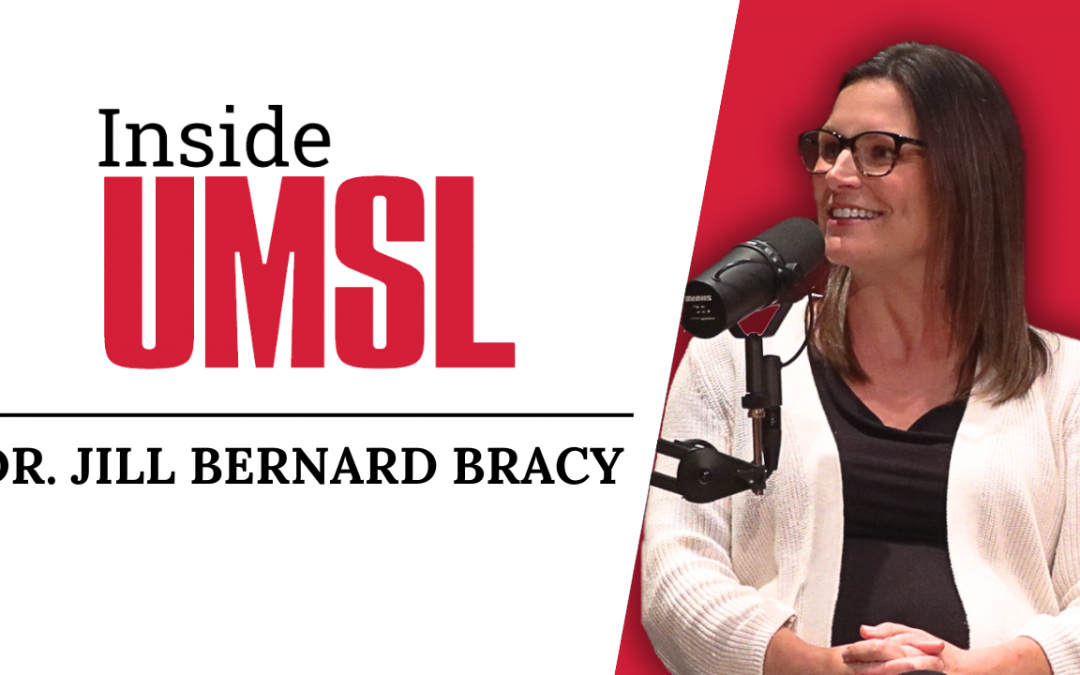
From left, Professor Beth Huebner, Associate Professor Marisa Omori and criminology and criminal justice doctoral students Alessandra Early and Luis Torres joined colleagues at Loyola University Chicago in co-authoring a new report on the plea-bargaining process in St. Louis County and Milwaukee County. (Huebner and Omori photos by August Jennewein; Early and Torres photos submitted)
Criminologists at the University of Missouri–St. Louis have taken an unprecedented look at the plea-bargaining process in St. Louis County and put their findings up against a similar study in Milwaukee County in Wisconsin.
A new report underscores the outsized role individual prosecutors play in plea negotiations and a lack of consistent standards and transparency associated with the process.
UMSL Professor Beth Huebner, Associate Professor Marisa Omori and criminology and criminal justice doctoral students Alessandra Early and Luis Torres joined colleagues at Loyola University Chicago in co-authoring the report “Exploring Plea Negotiation Processes and Outcomes in Milwaukee and St. Louis Counties.”
The work was commissioned by the John D. and Catherine T. MacArthur Foundation’s Safety and Justice Challenge and the City University of New York Institute for State and Local Governance. It was released Tuesday along with a similar report from the Urban Institute exploring prosecutorial discretion during plea bargaining in Philadelphia.
“Most cases are resolved with a plea, yet we know so little about the process,” Huebner said. “I think it is important to document the process and provide data on trends as the prosecutor is an elected official. As we have open data for local county police and jail agencies, it is also important that we understand the types of cases prosecuted.”
Plea bargaining – the act of a prosecutor and a defense attorney negotiating on behalf of their respective clients to reach a proposed outcome – has been a staple of the U.S. criminal justice system for decades. It can occur at any point from arrest to criminal charging to disposition and can even occur before a verdict is reached at a trial. Much more than trials, plea bargaining is a key driver of guilty outcomes.
Relying on administrative data collected through agencies’ case management systems for cases filed in Milwaukee and St. Louis counties through 2020, the researchers found that, in St. Louis County, 82% of cases were disposed by guilty plea with only 12% of cases dismissed.
In comparison, only 65% of cases in Milwaukee County were disposed by guilty plea with 25% of cases dismissed.
Guilty pleas have been on the decline in St. Louis County since the election of reform-oriented Prosecuting Attorney Wesley Bell, who succeeded longtime prosecutor Bob McCulloch in 2019. In 2019, the guilty plea rate decreased to 75% while the dismissal rate increased to 19%.
“This finding is consistent with the department’s overall goal to enhance the use of diversion, particularly for individuals with substance use disorders who are charged with drug-related and other minor crimes,” the researchers wrote in their report.
Huebner said Bell signed a letter of support for the study and provided data and aid in interpretation to the researchers.
“Prosecutor Bell has been an active part of the MacArthur program overall, and ran on the platform of reducing jail populations,” Huebner said.
The researchers found that Bell has added some limits to discretion in plea bargaining by expanding the sexual and domestic violence units as well as instituting a supervisor over all homicide cases.
But prosecutorial discretion remained the primary factor determining what a plea bargain looked like. The study found that most of the guidance that line prosecutors receive about how to charge cases and negotiate pleas is informal, and in St. Louis County, “legal actors indicated that it is the norm to negotiate pleas, including sentences, without judicial involvement.”
The data revealed racial discrepancies with Black people (76%) less likely than white people (88%) to have their case resolved by guilty plea in St. Louis County.
Huebner offered some ideas for reforms that could help make the process more equitable, including more financial support and staffing in the public defender’s office to cope with a case backlog, as people of color in St. Louis are more likely to be represented by a public defender. She also pointed to bail reform because several attorneys and defendants interviewed for the study said that people sometimes plead guilty to get out of jail more quickly.
“The judges, prosecutors and attorneys we interviewed had very little training on racial disparities,” Huebner said, “so there is an opportunity to have a broader discussion as a community on how to initiate training or reforms that can better address the disparities in all aspects of the criminal legal process.”
The report also recommended that policymakers enact changes to help standardize the plea-negotiation process, creating guidelines for initial plea offers along with improved data collection around plea negotiations.
Media Coverage
St. Louis Public Radio
Riverfront Times














